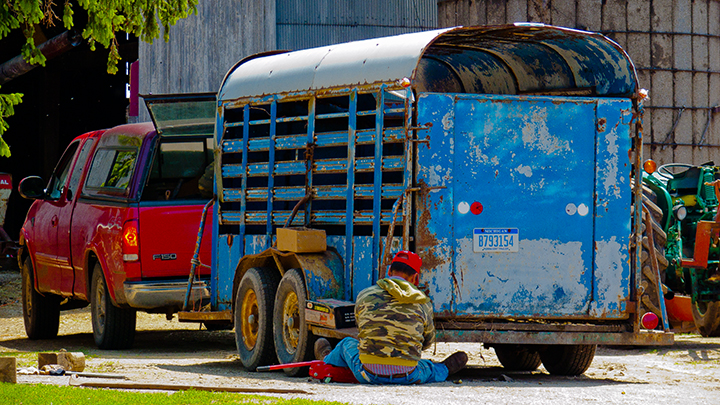
This week JPMorganChase announced the loss of 2 going on 3 billion dollars. "Chump change," some have said, "for a bank that big". And maybe so, when we're talking tens of billion in profits. Then candidate Romney reportedly tried to put the loss in perspective by explaining: "That's the way capitalism works. Somebody wins. Somebody loses." But, exactly. When somebody wins, somebody else loses. It's a zero-sum game being played. There is no net gain for the masses, no public good, no societal enrichment. Only somebody winning and somebody else losing. And whose money was that, anyway? The bank's money, i.e. the shareholders' money, we are assured. Definitely not the depositors' or the taxpayers' money. But does anybody believe that? The fact is, with the 1999 repeal of the 1933 Glass-Steagall Act, forced separation between investment and commercial banking activities ceased. Commercial banks use deposits to facilitate business activity and community development. Their purposes are social. Local businesses borrow to expand and to weather downturns. Communities borrow to develop infrastructure, schools, and promote stable home ownership. Investment banks, on the other hand, use investor deposits to gamble for private gain in speculative markets. There is no greater social purpose, no intended public good, only private ambition seeking to promote the shift of wealth and assets from many hands into a few hands. Just as Romney has stated: a loser for every winner, others would insist: a wake of despair trailing behind every gloating triumph. Investment banking takes no accounting of social consequence, only private gains and losses. It is a shallow self-serving game, without conscience, without virtue. Why, we need ask, should investment banks be allowed to stand on the foundations of commercial banks' earnest efforts for public good? Why, we need ask, should investment banks be allowed to leverage community wealth deposited in commercial banks for their own personal gain? Why, we need ask, should commercial banks and tax-payers be made to assume ultimate responsibility for the consequences of a banking sibling responsible only to itself? The situation seems not unlike a family trying to hang together with one member an out-of-control alcoholic, contributing nothing but instability to the family unit while undermining the mental health, welfare, and productivity of each individual non-drinking member. By contrast, what does it mean to work for social or community good? What does it look like? How does it work? And what's in it for those who do? Take a look at the image above. The man at work repairing a livestock trailer is part of a family of three families. They live in one house and two house trailers on a small farm they all own and work together. They raise chickens and breed beef cattle. They eat the eggs and chicken. They sell the cattle for slaughter. Their buildings are not in the best of shape. Their equipment is second-hand. Their vehicles have mismatched tires. But they smile and laugh, work hard, and get by. Each individual member contributes for the good of the group. No one person tries to get ahead of the next. Nobody is a slacker. Each knows their worth to the group and contributes as much as they can. All help manage the problems. And all enjoy a share of the returns. No one person or couple within the group wins while the rest take a loss. They live off the value they create together for themselves and for the larger community. They make do and are a stable resilient tax-paying asset to the wider community. The economic welfare of the larger U.S. community depends on a well functioning commercial banking sector to facilitate business activity and community development. Commercial banks are socially relevant and integral. It is necessary we have tax-payer backed governmental agencies regulate and guarantee their survival. But at the same time, the U.S. Constitution does allow for private enterprise. That is, it gives freedom to engage in economic activity for personal gain. There is, therefore, no reason for investment banks to be disallowed. But they should be required to stand on their own without reliance on foundation from commercial banks or backing from government. If people want to risk their wealth by depositing it within investment banks, that is their decision. There should be no guarantee from tax-payers or government or commercial bank depositors. Investment banks and their investors should be required to make do on their own with no liability for the rest of us. As commentators like Robert Reich, John McCain, and Elizabeth Warren have recently said, reenactment of the Glass-Steagall Act might be just what we need right now to ensure a stable separation of societal necessity from speculative ambitions for personal gain. Unfortunately, an uninformed and bewildered public seems unlikely to rouse Congress from self-serving sensual slumber with investment banking lobbyists. May your interest in this issue help reset the Congressional agenda for banking reform. |
• Posted: May 20, 2012 18:14:31
• Comments Welcome
• Vote CoolPhotoblogs
• Purchase a Print
• Share
Sunday, May 13th, 2012 New Troy MI USA |